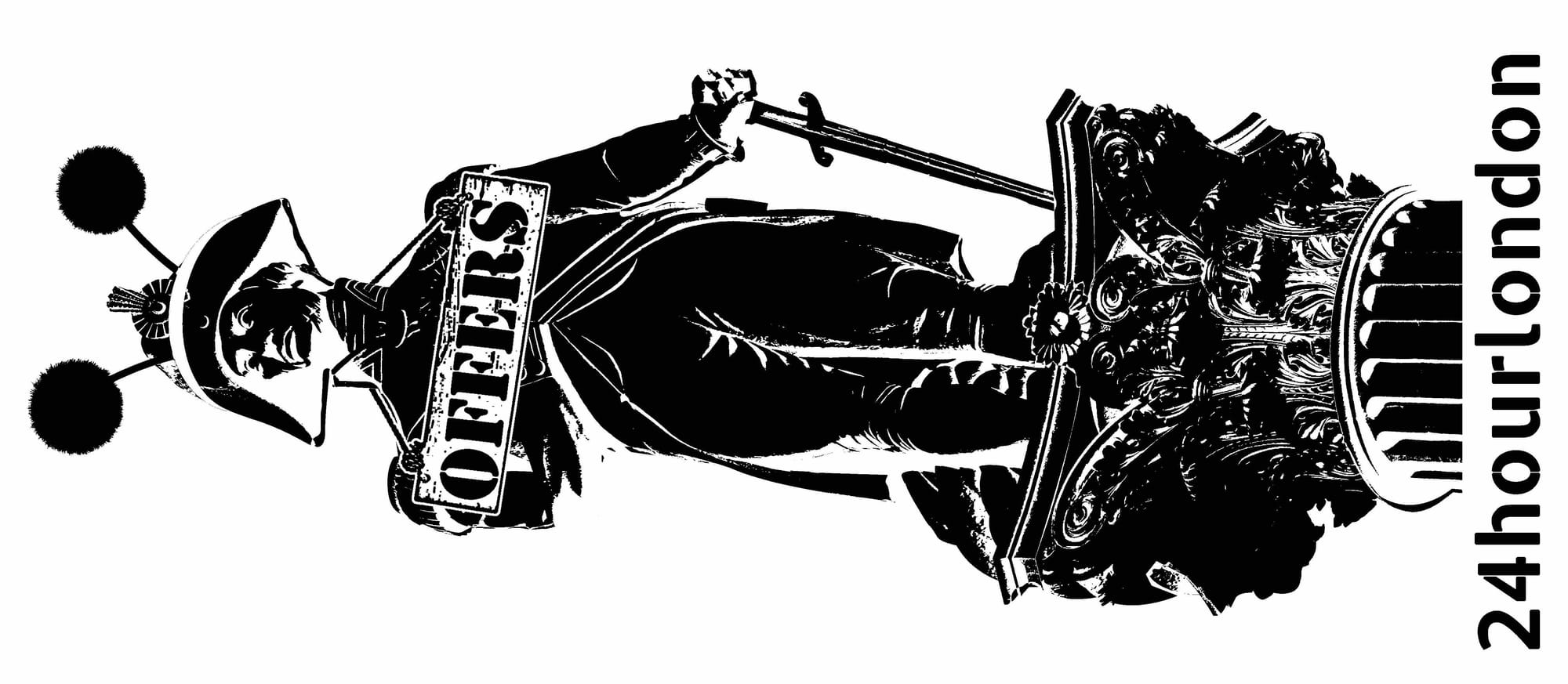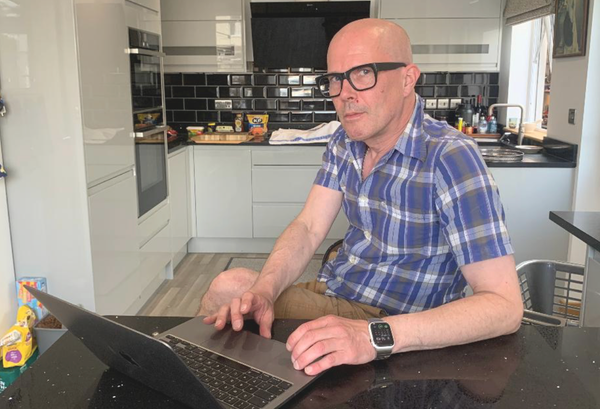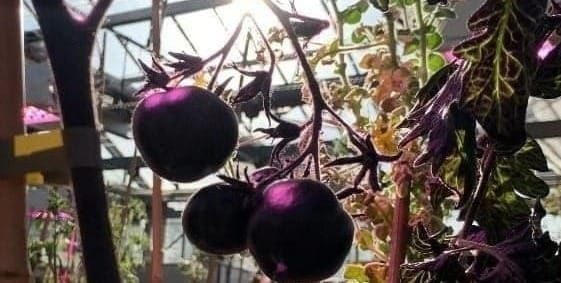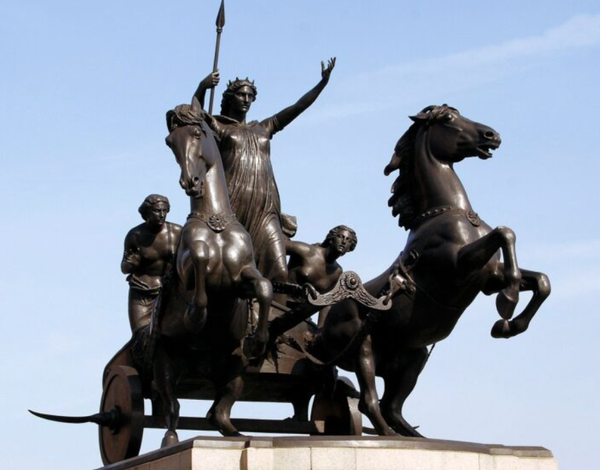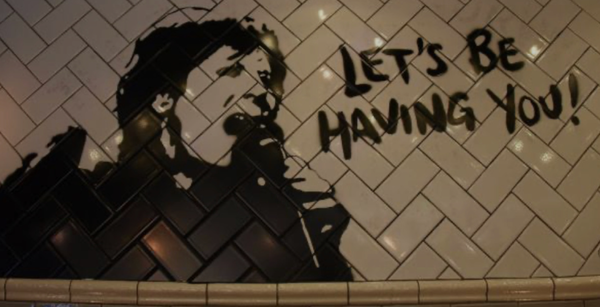Sam Kelly: dancing dogs and putting the folk into Norfolk
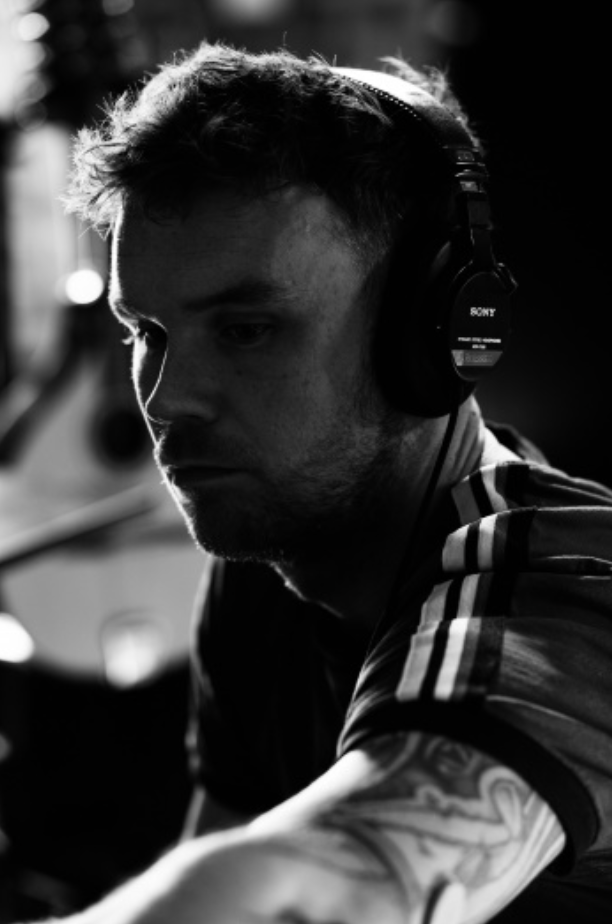
Sam Kelly: folk musician, music producer, Britain's Got Talent (BGT) finalist and Norfolk boy - I'm especially pleased about the last part. I've been wanting to interview him (originally for this) for about nine years and 24hournorwich is a format that finally permits it. He went to Sprowston High, you see? Norwich connection. This was the song that lit the fuse for me.
It's a delicate fact, though, that if we'd had this chat nine years ago it would have been very different.
We've all been through the wringer to some extent since 2020. But it feels as if enough time has passed for some of the more painful and surprising stories about other people's lockdowns to begin working their way out from where they've been buried.
In Sam's case that location was Badersfield: the strange and, it seems to me, strangely powerful place formerly known as RAF Coltishall.
When Sam said he's been living there on and off for the last five years I could hardly believe it. I've become mesmerised by Badersfield, as a result of my job taking me there sometimes. (What I'm learning about the place is for a different 24hournorwich post.) So it was an odd coincidence to find that it was our most convenient rendezvous and that he's similarly obsessed with the place - because he spent a large part of lockdown there.
"Yes. It was me, my brother, his girlfriend and my mum, who was recovering from chemo and very vulnerable. So none of us could leave the house. We had to get government-organised food parcels, which were very appreciated but pretty gross. We ate lots of bread," he said, managing not to sound too glum about it.
We're at The Goat Inn in the early evening and our party is completed by an energetic cavapoo called Fergal (his, not mine), who was expecting a walk but instead got bundled into the car due to rain and teleported to the pub. Fergal makes his disappointment felt in many ways, most - but not all - of them adorable.
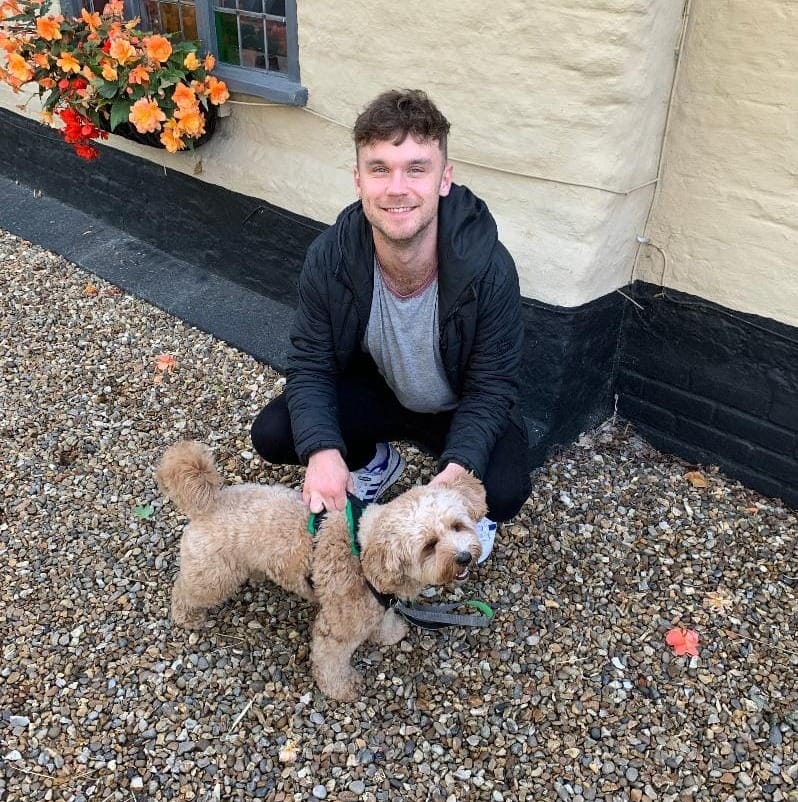
The weirdness of Badersfield contains multitudes. Every time the end of its strangeness seems close, I learn something even more bizarre about it. The long-time airbase is now an "enterprise park" filled with Cold War megaliths, solar panels where the runway used to be, a prison (HMP Bure) and - perhaps most potently - rumours of subterranean networks. Sam's fascination with the place has an extra dimension, though, since he's into foraging and plantsmanship.
"In the woods there's a very impressive colony of sulphur tuft fungi, which is not interesting from an edibility point of view - it's poisonous - but it glows in the dark if you shine a UV light on it. It's great fun walking in woods that have sulphur tuft flushes at night with a UV torch.
"But there's a very lovely wildflower meadow just next to the woods, where I've foraged lots of edible goodies like broadleaf plantain seeds, red clover, dandelions and daisies. I don’t like using wildflowers for eating because we have such a crippling lack of wildflowers and pollinators in this country. So normally I just walk there and enjoy it. Plus there is so much fucking weird stuff on the base to nosy at."
He went to Badersfield in February 2020 because he needed to look after his mum, who was getting over her third bout of cancer and who, before you ask, is doing fine now. "My brother had been with her and it was my turn," he said. "Her last round of chemo was a month before lockdown started and she was lucky because lots of people had their life-saving treatment cancelled. So I came back from Bristol, where I’d been living with my partner at the time [the folk musician Kitty Macfarlane]. And then couldn’t return because of lockdown... Then the relationship broke down. She basically decided that me being away was something she wanted to become permanent." He laughs ruefully. "She's a producer on Countryfile now."
So how did lockdown affect your feelings about Norfolk?
"I feel a part of the landscape, in the sense that I feel connected and rooted here. I love the placid waterways of the broads and the lovely coastline. But it’s the people in the end.
"My father’s family were all watermen and thatchers going back quite a few generations. The watermen were responsible for keeping the broads navigable and stopping them turning back into marshland. They would pretty much live on the water, cutting reeds and dredging the waterways. So thatching was a natural offshoot of that [because they used the reeds for it].
"My great-great-grandfather was the last waterman in the family and my great uncle was a thatcher, so that lasted an extra generation. Dad is a secondary school maths teacher."
Fellow pupils at Sprowston High, class of 2008, knew Sam Kelly as Sam Davison, Kelly being his mum's name. But it's unlikely that any of them missed his blistering rise to fame in 2012 on ITV's Britain's Got Talent, social media being what it is. So how did that happen?
"The band I was with at the time - I was still at uni in Brighton - was playing in Balham and we had a day off. I saw a sign advertising the auditions and had my guitar with me. Then I got a call six months later saying that they wanted to put me on TV."
This resulted in a rollercoaster tour of the music industry's peaks and troughs that took him to the show's 2012 final, into the charts with a version of Bless the Broken Road and on to the cover of at least one magazine, leading him to drop out of his university course, which was in any case about how to be a music producer.
"Then I lost in the final to a dancing dog."
Well, that's showbiz, I guess? We pause for a moment while Sam reassures Fergal that there's absolutely nothing wrong with being a dancing dog.
So what did Britain's Got Talent teach you about the music industry?
"It gave me a clear idea of what I didn't want to do. By the end there was an offer on the table for an album of pop covers, involving management by the same people who were doing One Direction. And I got a really bad feeling about the whole thing." So he walked away. But why exactly?
"Everyone was very financially motivated - I'm not - and chasing hits didn't give me any joy. Also, the experience made me feel out of control."
Reading back on this exchange later, I wonder whether the intervening decade or so has made him regret not having ridden that tiger for a little longer, for the financial cushion it could have given him. After all, the path he chose - folk music - had already been made harder in some respects by BGT.
"But it also made us - me and Jamie [Francis, with whom he still plays] - much better live. When you’re starting out as a musician, in the folk scene especially, people are generally on your side. But we’d find that the audience was automatically against us because of the BGT stuff being used in the marketing. Especially at festivals."
At this point he acts being a folky in his audience, sceptical of Sam’s Kelly’s bona fides. He crosses his arms and frowns. "We got a lot of people in the first few years coming up and saying 'I was really ready to be completely underwhelmed but actually you were pretty good'.”
This gives me pause to reflect too. I'd had a moment, researching this, of feeling pretty foolish. It was after watching his BGT videos for the first time and listening to the judges' feedback, which was universally knockout. For although Sam does a very good job of being modest, deep wells of resilience must come from having been told as a teen that his voice was beautiful and world-class music producers wanted to work with him. Earnestly, I had told him during the interview that he had a terrific voice (since it was why I'd wanted to interview him). But asking "does Sam Kelly have a good voice?" is - I now realise - one of those "does the pope shit in the woods?" inquiries. This really is a given. Sam Kelly's voice is like a golden thread illuminating his music from within. It's what people mean when they say they were transported by a musical experience. There is something ever so slightly magical about it.
"But I think many of the people on that show were similarly talented," he says. "That I got as far as I did was a lot to do with luck: I'm under no illusion that I was on BGT for any reason other than because I filled a role that they were trying to cast. They saw me as this goofy, funny guy. I remember that at my first audition I had a disgusting cold. And I made a joke about it, which made them all laugh. They saw me as this silly, happy-go-lucky student. A cheeky chappy."
Are you not a cheeky chappy?
"I think I am a cheeky chappy, to be fair. But they have enough interview footage to portray you any way they want to. I guess my point is that there were people on the show who saw it as their one big opportunity to make it in showbiz and who suffered at the hands of the producers. That's one of the reasons why those shows are a lot more unpopular now... they're very exploitative."
It turns out that when BGT embraced him, he had already made several less successful attempts on a career in the performing arts. After school he applied to the Central School of Speech and Drama, for which his audition piece was "one of the soliloquys from Macbeth. I realise now that I would have been much better off doing something less weighty, like Puck. It was bad anyway. I didn't get through the first round."
And - a scoop for me, he says - he also applied unsuccessfully for the folk music degree course at Newcastle, Sage Gateshead, which has become a well-trodden path into the folk world. Wow. How did that not go according to plan? I bet they feel weird about that now...
"I really messed up the audition. I didn’t have a good understanding of what folk music was. I had this adjacent link through my grandad," his mum's father, whom Sam credits with having ignited his love of the genre. "So, he would sing me folk songs: he would sing something like My Lagan Love, which is a traditional song to the Lagan river in Belfast. But then he would sing a theme tune from a TV series in the 60s. I would be like: oh, that’s another folk song because grandad is singing it to me."
Oh god. Similar rooky errors from my own past come swimming back.... But isn't this really just the price of putting yourself out there, of having a go?
Sam talks about the debt he owes to the Lakeman brothers - especially Sam Lakeman and his wife Cara Dillon, then Sean Lakeman and his wife Kathryn Roberts - for their advice and support at the beginning and for not being deterred by the BGT connection.
And we navigate a generational divide with moderate success, when he says that he no longer plays a song called The Close Shave because he and The Lost Boys now consider it to be transphobic - when I think the opposite. Decide for yourself.
Me: "Go on, admit it. You just don't want to be cancelled."
Him: "No, I don't want to be cancelled. I also don't see the point of playing that song, which upsets people, when we have so many others we could do instead."
So I ask him about the new album...
The previous night, by way of an explanation of what I was up to, I'd played his version of Dark Eyed Sailor to my mum, who'd listened with enormous attention. And then at the end she had asked me, gripped: "So was it him??"
"Yeah, that's funny," Sam giggles. "I mean obviously it's a good story. But there are so many stories like that in folk songs, where it's basically a man exhibiting about 500 red-flag behaviours and then it's supposed to be romantic."
Me: "You don't need him, love. Move on."
Sam: "He sounds MENTAL, trying to test your loyalty after being away for six years."
And it occurs to me that this song is exactly the kind of thing that the BBC Folk Awards would once have celebrated with all the exuberance it could muster: old song, young golden-voiced singer. Poking around online I find that there hasn't been a BBC folk awards ceremony since 2019, which is kind of awful. Seemingly it was a victim of the pandemic and the BBC has said nothing publicly on the subject since.
Although Sam told me how much he typically spends marketing one of his albums - between £2,000 and £4,000 - the BBC folk awards was (or at least should have been) the marketing lynchpin of the entire English folk scene. A kind of sunk cost, making the whole sector more buoyant. The loss of the awards must be a real financial blow to hundreds of world-class musicians at a time when the industry needs all the help it can get.
I asked the BBC press office about it. And instead of telling me whether the BBC folk awards will be returning - as I asked - I received a press release that seemed to be about what the budget was being spent on instead in 2023. (21st Century Folk, apparently.)
If someone at the BBC would like to try again, they can reach me here.
- If you enjoyed this post please sign up at the top of this post and become a 24hournorwich subscriber.
- Here's another bit about a dog
- And here is a link to my folk music blog 2010 - 2016
